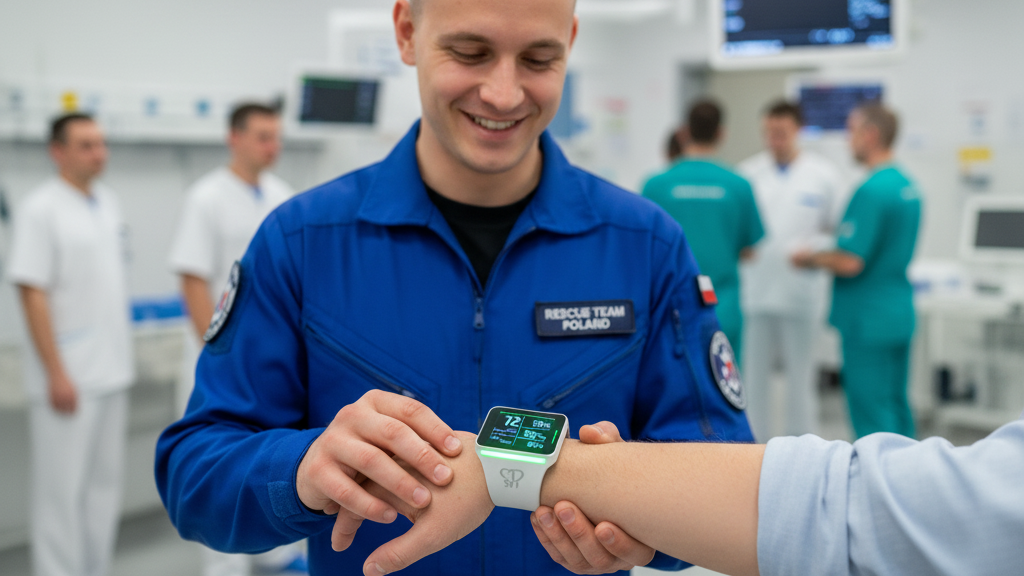Science
The Monk Who Saw the Future: Did an 11th-Century Benedictine Beat Astronomers?
17 February 2026

Polish students built a low-cost, effective smart triage wristband that tracks vital signs and alerts staff. With it, they reached the James Dyson Award finals.
A team of students from WSB Merito University in Warsaw and Poznań has created an intelligent rescue wristband. The invention is designed to help clinicians quickly assess the condition of many casualties at once. Called the Smart Triage Tag, the device targets mass-casualty incidents but also Emergency Departments, where staff shortages are common.
How does it work? Once placed on a patient’s wrist, the band monitors vital signs. It measures heart rate, blood-oxygen saturation and ECG. Data flows to clinicians via an app, letting them track many patients simultaneously — even at a distance.
If a patient deteriorates, the band immediately changes colour and triggers an alarm. A major advantage is its low cost to make and service (standard, widely available tools suffice). The device does not require integration with advanced hospital equipment. It is also scalable — new functions can be added, and roll-outs can expand across more patients and facilities with different profiles.
Curious? Knotted light could reshape how we encode information.
The invention by Polish students aims to help medical staff triage many casualties accurately and fast. Until now, the order of care has often relied on a clinician’s subjective and sometimes incomplete assessment. This could change.
Students from Poznań and Warsaw have already scored a win — they took the national stage of the prestigious James Dyson Award and received a PLN 25,000 grant. The money will fund further development and volunteer testing. On 5 November 2025, they will compete in the international final, where PLN 150,000 is at stake.
To win, the team must outperform entries from 28 countries and two other Polish projects: an intelligent water-quality monitoring and alerting system, and Silent Box, a kind of “personal quiet zone” that suppresses city noise for calmer living.
It’s worth noting that a similar life-monitoring wristband was deployed in Kalisz in 2022, when city authorities provided tele-bands to 111 seniors. Those devices also monitor residents and enable rapid response when vital functions worsen.
The winners will be chosen by James Dyson — the renowned inventor and founder of the household-technology company. We will learn the results on 5 November. Regardless of the outcome, this wristband could reshape emergency care in Poland. In 2024, there were over 21,000 road accidents in Poland, in which nearly 2,000 people died. Perhaps some of those lives could have been saved.
Read this article in Polish: Wynalazek Polaków podbija świat. Inteligentna opaska ratuje życie
Science
17 February 2026



Zmień tryb na ciemny